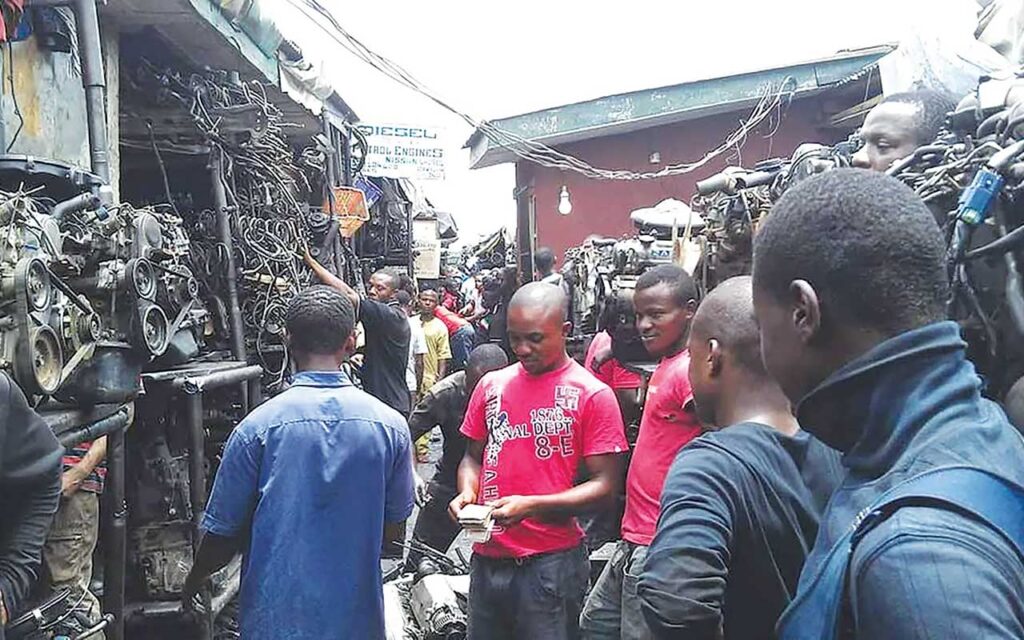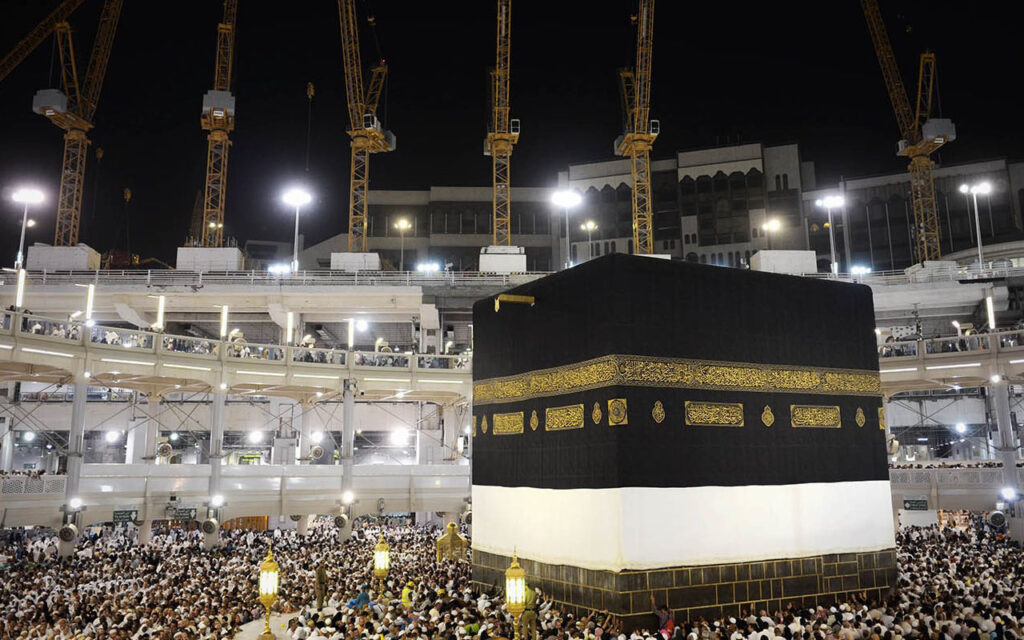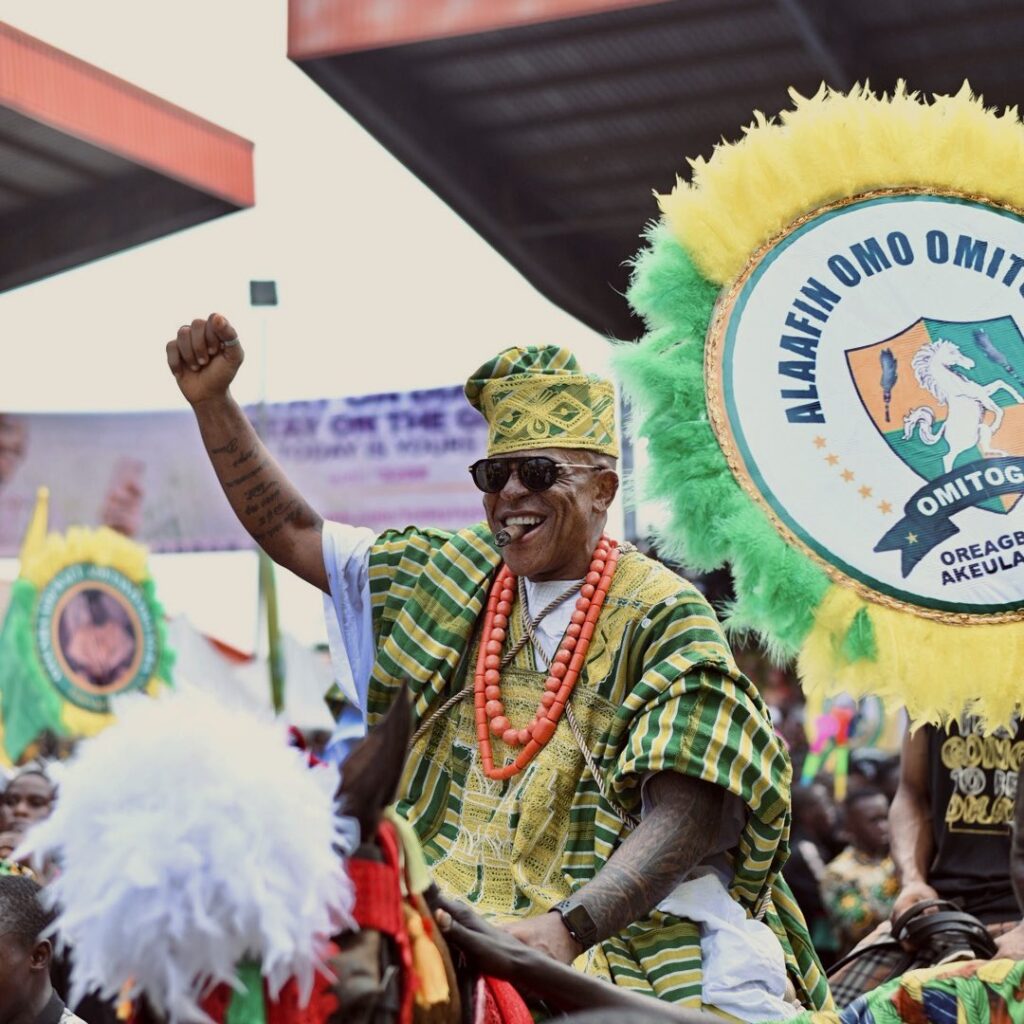[dailymotion code=”x81pul8″ autoplay=”yes”]
• Malami Orders Prosecution Of Offenders
• Move Unbecoming Of Democratically Elected President —Soyinka
• Editors Call For Caution
• Nigerians Warned On Routing Twitter via VPN
The President Muhammadu Buhari administration’s growing insatiable thirst for undermining freedom of expression is gradually exposing the country to national and international ridicule, especially with its suspension of Twitter on Friday.
The move, coming two days after Twitter had removed what is considered offensive in President Buhari’s tweets in line with the social media company’s “abusive” behaviour policy. The President’s account was put on hold for 12 hours after he threatened punishment for regional secessionists and blamed them for attacks on government buildings.
But telecommunications companies have said that they are currently working closely with relevant stakeholders to ensure there is a speedy resolution of the current suspension of Twitter activities in Nigeria.
Meanwhile, the federal government has indicated that the suspension is temporary.
The telcos, under the aegis of the Association of Telecommunications Companies of Nigeria (ATCON), said it is equally worried by the development.
The President of ATCON, Ikechukwu Nnamani, yesterday in Lagos, stated that while the Association and its member companies understand the position of the Federal Government and the reasons for the directive, and have complied with the directive, it is pertinent that the issue is resolved soon in the interest of all.
Nnamani emphasized that the Over-The-Top (OTT) platforms of which Twitter is one, is an integral part of the digital economy that the Federal Government is promoting, so when an unfortunate disagreement arises with respect to the user policies, it is good it is resolved in a timely manner.
The telcos, acting on a directive from the Nigerian Communications Commission (NCC), had blocked earlier assess to Twitter in Nigeria.
A sister body to ATCON, the Association of Licensed Telecoms Operators of Nigeria (ALTON), in a statement jointly signed by the Chairman and Executive Secretary, Gbenga Adebayo and Gbolahan Awonuga respectively, reads: “We, the Association of Licensed Telecommunication Operators of Nigeria (ALTON) wish to confirm that our members have received formal instructions from the Nigerian Communications Commission (NCC), the industry regulator to suspend access to Twitter.
“ALTON has conducted a robust assessment of the request in accordance with internationally accepted principles. Based on national interest provisions in the Nigerian Communications Act, 2003, and within the licence terms under which the industry operates; our members have acted in compliance with the directives of the Nigerian Communications Commission (NCC) the industry regulator.
“We will continue to engage all the relevant authorities and stakeholders and will act as may be further directed by the NCC. We remain committed to supporting the government of the Federal Republic of Nigeria and upholding the rights of citizens.
“As an industry, we endorse the position of the United Nations that the rights held by people offline must also be protected online. This includes respecting and protecting the rights of all people to communicate, to share information freely and responsibly, and to enjoy privacy and security regarding their data and their use of digital communications.”
In wake of the reactions, the Federal Government made another move in the reinforcement of the Twitter ban when the Attorney General of the Federation (AGF) and Minister of Justice, Abubakar Malami (SAN) yesterday directed immediate prosecution of offenders of the Federal Government ban on Twitter operations in Nigeria.
Malami directed the Director of Public Prosecution of the Federation (DPPF) at the Office of the Attorney General of the Federation (AGF) and Minister of Justice, to swing into action and commence in earnest the process of prosecution of violators of the De-activation of operations of Twitter in Nigeria.
In a statement signed by Special Assistant on Media and Public Relations in the Office of the AGF and Minister of Justice, Dr. Umar Jibrilu Gwandu, Malami directed the DPPF to liaise with the Ministry of Communication and Digital Economy, National Communication Communication (NCC) and other relevant government agencies to ensure the speedy prosecution of offenders without any further delay.
However, stakeholders have continued to react differently to the development. For instance, the Governor of Oyo State, Seyi Makinde, said as leaders, there is a need to go beyond emotional reactions to issues and think about how the actions will affect the people, international ratings socially and economically.
Makinde’s statement reads in part: “Twitter has become the platform for young people and indeed all Nigerians to exercise their fundamental right to express and publish an opinion. They use the platform to complain, argue and give feedback to the government and its agencies that in turn, use these to improve policies. This is a fundamental point that should be kept in mind as we debate the necessity of this suspension.
“We should also remember that Twitter has gone beyond a source of communication for many of our hardworking youths in Nigeria. It has become a source of livelihood for many, irrespective of their political affiliations or religious leanings. Nigerian youths and digital communications organisations earn a living from being able to use the platform to post communications on behalf of their clients.
“Others who may not have physical stores also rely on Twitter to give visibility to their products and services. Furthermore, I believe the Federal Government should be actively interested in how certain policies and action will affect investor confidence. I, therefore, use this medium to appeal to the Federal Government to reverse this suspension for the greater good of Nigerians.”
Nobel laureate, Prof. Wole Soyinka, in a statement, also said: “Heard the news of Buhari’s ban on Twitter an hour or so after sending off ‘To Shock And Awe’ to the print media. Kindly add my total lack of surprise at this petulant gesture, unbecoming of a democratically elected president. If Buhari has a problem with Twitter, he is advised to sort it out between them personally, the way Donald Trump did, not rope in the right to free expression of the Nigerian citizen as collateral damage. In any case, this is a technical problem Nigerians should be able to work their way around. The field of free expression remains wide open, free of any dictatorial spasms!”
The Nigerian Guild of Editors (NGE) also urged the federal government to tread with caution and immediately reconsider the suspension of the operation of Twitter in Nigeria and seek other legitimate means of resolving its dispute with the company.
In a statement by its President, Mustapha Isah and General Secretary, Iyobosa Uwugiaren respectively, the NGE said that the federal government’s action has the unintended consequence of jeopardising the economic interests of many Nigerians who rely on the social media platform for vital information to make informed business decisions daily.
Advising the federal government to desist from any action that would project the Nigerian government as a dictatorship, the editors said the action is an infringement on Section 39 of the 1999 Constitution and violates the right of Nigerians to interact freely on this platform.
“In addition, the suspension is a grave breach of Nigeria’s international obligations under article 9 of the African Charter on Human and Peoples’ Rights, and article 19 of the International Covenant on Civil and Political Rights.
“The Guild sees the federal government’s action as an overreaction to Twitter’s decision to delete President Muhammadu Buhari’s tweet early this week.
“If the federal government finds Twitter’s action against the President objectionable, Nigerians should not be made to suffer the collateral damage of denying them their right to free discourse on Twitter’’, the Guild added.
The Guild noted that the federal government had in an initial reaction by the Minister of Information and Culture, Alhaji Lai Mohammed, condemned the deletion of President Buhari’s view as an unacceptable tab on the president’s right, saying this ought to have been a sufficient response.
“However, the ban at the weekend, of Twitter’s operation in Nigeria, is an overkill that gives wind to the sail of critics who daily accuse the Buhari administration of intolerance of opposing views.”
The Guild called on the government to immediately rescind its decision in order not to deny millions of Nigerians who rely on Twitter to provide services and earn a living.
Nigeria Coordinator, Alliance for Affordable Internet (A4AI), Olusola Teniola told journalists that from the look of things, it is very clear that the government is trying to regulate the Internet and social media.
“Unlike China, which is a communist country and has a central information system, this is not possible in Nigeria.
“In the case of Nigeria, it is very difficult to enforce because Twitter doesn’t have a physical office or presence in Nigeria. Their office is in Ghana. What obtains is that it is the local technology companies that provide access to their services which people access here. Even though the government is desirous of banning the activities of Twitter, it is powerless in this instance because there are several ways to access Twitter. I think the government decision would be weakened by the fact there are several other ways to bypass the ban and easily access their (Twitter) service. So there is really no cause for alarm. The digital world cannot be controlled, because it is a global platform,” Teniola stated.
While it has been disclosed that via VPN, Twitter can still be accessed, Nigerians have, however, been warned to be careful in order not to fall prey to cybercriminals.
A telecoms expert, Kehinde Aluko said though VPN is often used to bypass local Internet restrictions, which works by routing Internet traffic through a server that sits between user devices, phones, computers among others, and the Internet, it is also prone to hacking.
Aluko said it makes users appear to be connecting to the Internet from a location different from his geographical location, adding that with many premium VPN, one can actually choose your virtual location.
The warning, according to him, “is that not all VPN providers have good intentions. Since the server that sits between you and the Internet is receiving your information and routing it, the operators of the server may be able to see, store and use your information. A VPN is like asking someone to go to the ATM on your behalf. You not only need to hand over your card, but you also need to hand over your pin.
“So, what do I recommend? Turn on the VPN only when you need it. Keep it off when you don’t. Turn it off specifically when you are doing anything sensitive on your phone including sending emails, shopping with your financial details or using your bank apps.
“Finally, use a legit VPN provider. Be careful with the free ones. Soon, many people abroad will be setting up free VPN for Nigerians. Please, let’s look carefully before we leap. Cases of 419 and financial fraud may spike with this,” he warned.
A civil organisation, Action Group on Free Civic Space, described the ban on Twitter as a brazen attack on free civil space in the country.
In a statement, yesterday, the body expressed shock and displeasure at the Federal Government’s decision to suspend operations of the microblogging platform.
The statement, signed by the Executive Director, Spaces for Change (S4C), Victoria Ibezim-Ohaeri; Executive Director, Rule of Law and Accountability Centre (RULAAC); the Amaka Chiwuike-Uba Foundation (ACUF) and 10 other civil society groups read: “This worrisome action not only constitutes a gross and reprehensible attack on the freedom of expression of millions of citizens but also portends great danger for internet freedoms and the civic space in Nigeria.
“Buhari’s disposition towards civil liberties, including the current suspension, casts doubts on the claims that he is now a reformed democrat. No known democratic head of a government that has been sanctioned by Twitter ever took this tyrannical route. At the height of his contestations with the mainstream and social media platforms, former United States President, Donald Trump, never suspended any social media group, let alone blocking their business operations in the country.
“The Action Group on Free Civic Space, therefore, demands the Nigerian government to rescind this suspension to save the democratic image and credentials of Nigeria, which, at the moment, is battered by several reports of assaults on democratic freedoms well documented on the Closing Spaces Database, www.closingspaces.org.”
Yiaga Africa also condemned the indefinite suspension of Twitter services in Nigeria and the directive that all Over-The-Top (OTT) services must be licensed by the National Broadcasting Commission (NBC) before they can operate within Nigeria.
Yiaga Africa Director of Programmes, Cynthia Mbamalu said in Abuja that the body is concerned that at a time when nations around the world were building mutually constructive relationships with citizens through diverse channels of communication, the Nigerian government is imposing a ban on a platform where citizens engage in public conversation, public policy scrutiny, and civic engagement.
Also, the Youth Rights Campaign (YRC), a non-governmental organisation, condemned the suspension, describing the move as dictatorial and a direct attack on the democratic rights of Nigerians to freely express themselves.
In a statement, yesterday, by YRC National Coordinator, Adaramoye Michael and Secretary, Francis Nwapa, the rights group called on the Federal Government to reverse the suspension immediately.
The body urged the government to halt attacks on democratic rights, including the reversal of the Social Media Bill and all measures aimed at curtailing civil liberties.
Social media users and other Nigerians within and outside the country have continued to express shock and outrage, labelling the decision as shameful, especially as the suspension of the tech giant’s operations in the country is coming barely seven months after the Federal Government threatened to sanction the Cable News Network (CNN), over its investigative report on the #EndSARS protest in Lekki, Lagos State.
Following the publication of its findings on November 18, alleging that soldiers used live bullets on #EndSARS protesters who had converged on Lekki tollgate on October 20, where it alleged that many were killed and some still missing — according to eyewitness accounts, the Federal Government claimed the CNN was irresponsible in its report.
The Minister of Information, Lai Mohammed, at a news conference a day after the report was released, who described the alleged killing at the Lekki tollgate as “massacre without bodies,” said: “This should earn CNN a serious sanction for irresponsible reporting.
”Like everyone else, I watched the CNN report. I must tell you that it reinforces the disinformation that is going around, and it is blatantly irresponsible and a poor piece of journalistic work by a reputable international news organisation. CNN engaged in incredible sensationalism and did a great disservice to itself and to journalism… This is very serious and CNN should be sanctioned for that…”
But the government’s planned move was greeted with provoked outrage. Those who expressed outrage include civil society organisations (CSOs), the Nigerian Bar Association (NBA) and Senior Advocates of Nigeria (SANs), who advised the government to be cautious in its dealing with the news network.
With this Twitter suspension, series of reactions have begun to trail the government’s action. The former Senate President, Dr. Bukola Saraki, said: “No, this should not be the response from the president of a nation with a vibrant youthful population for whom Twitter is part of their daily lives and a source of their income and livelihood.”
The human rights lawyer, Femi Falana said the ban is a plan by the Federal Government to gag the media, which shows that the President has suspended Chapter IV of the 1999 Constitution.
He argued that the suspension is also at variance with the Freedom of Information Act, which seeks to expand information and access to it.
The senior advocate said he was sure that Buhari’s regime would soon ban international news networks like CNN, BBC and Al Jazeera.
Socio-Economic Rights and Accountability Project (SERAP), on its part, said it will take the government to court over what it termed “illegal indefinite suspension,” noting that Nigerians have a right to freedom of expression and access to information including online, “and we plan to fight to keep it that way.”
The human right activist, Reno Omokri, said the suspension should be ignored, noting that Buhari’s government has no means to effect the suspension, adding g that even members of the administration are still on Twitter.
The questions agitating the minds of many Nigerians and begging for answers are: “What year did Nigeria license @Twitter to begin operations in the country? What law approved the license? How can you stop the operations of what you never licensed?”













